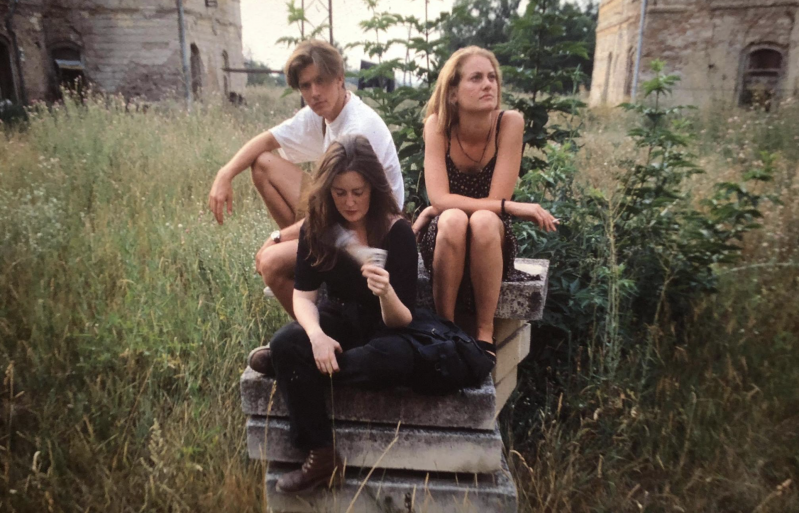My children do not speak like native eastern Long Islanders, or even like citizens of the old New York. Their pronunciation is the same as that of my Amagansett nieces and nephews: that is, generic mass-entertainment pronunciation. I don’t know if the received Netflix pronunciation is a Californian inflection or a Midwest thing, but they will persist in pronouncing orange (which to me is are-inge) as ore-inge; and avenue (aven-nyew to me) as aven-noo; pure (pyure) as pyer, and coupon (kyew-pon) as coop-on.
I’m a rabid preservationist. To me that means a fanatical desire to preserve multiplicity in all things, everywhere — varieties of apple, manufactures of English blue-willow china, regional bean recipes involving lard, manners of holding a fork, jump-rope chants, timber-frame houses, pronunciations. I would like humans to be more aware of the fact that cultural uniquenesses and differences are going extinct as quickly as species of frogs, birds, and primates. “Globalization” — corporate dominance of culture — along with digital interconnectedness are homogenizing the life and beauty out of everything.
Which is why I torture the young people by forcing them to repeat after me:
Mary: Mare-ee.
Merry: Meh-ree.
Marry: Mah-ree, with the “mah” sounding like the “mah” in “magnificent” or “manners,” not like the “meh” in “merry” or “meh.”
Apparently maintaining a distinction between these vowel sounds is something almost unique to the tri-state area . . . or was something almost unique to the tristate area, up until my generation. Most Knickerbockers of Gen Z can’t hear the difference anymore, it seems. Maybe in some inner sanctums of Queens? I don’t know.
This is a fool’s game. Despite these efforts, I’m losing it, too: I cannot for the life of me remember if I used to say “fore-ist” or “fah-rist” for the word forest, and no amount of visualizing a bearded 1970s camp counselor of my childhood whose first name was Forest resolves the riddle.
I’ve been an editor for 30 years now, which has only made me more overbearing about trends of written language as well as speech, but I was always a self-appointed Word Police officer. Example: I’m Gen X, and it happened on my generation’s watch that talking about bodily functions — sh!t talk — became a signifier of an enviable earthiness. In the late 1980s and early 1990s, the cool kids started making a big show of sniffing their armpits, forcing out loud belches, and discussing loudly what they had deposited in the toilet. I never boarded the turd-talk express. I was brought up in the sort of old-fashioned, chilly Puritan atmosphere in which there was never any reason to discuss bathroom smells unless it was in response to a question from your doctor, and I persist in believing things were better that way.
I’ve always said that if you over-use the common four-letter word beginning with S and ending with T, all you are doing is inviting an aura of that word — its fragrance — to hover around your person like the cloud of dirt that encircled the head of Pigpen in the “Peanuts” comic strips. (Why in the ever-loving name of all that’s holy would someone wear a shirt or carry a backpack with a poop emoji on it? Lie down in a bed of manure, get up smelling like a horse’s ass.)
Nothing can stop the diffusion of regional particularities in language, and I’m aware that less cranky wordsmiths — those who don’t shout “citizen’s arrest!” when someone innocently says the word “veggies” aloud or uses “achingly” in a book review — would argue that English is simply evolving, that newer words and pronunciations come in as the old ones go out. Meh. I’m not convinced.
My kids’ latest lingo includes the video-gamers’ verb “to cap,” meaning to lie — “Stop capping, dude! You did not reach Quad-X rank!” — but mostly it’s just text abbreviations spoken aloud, like R.N. (“right now”) and I.G. (“I guess”). Kids in all corners of America use these same abbreviations, though; slang is far less neighborhood-y.
I.D.K. (I don’t know.) It’s not exactly Cockney rhyming slang, is it?
My concern about the homogenizing power of globalized commerce and media upon our experience of the world — and by that I mean everything, from disappearing Kentucky dialects to methods of coffee drinking in the farthest-flung kavehaz — developed when I lived in Budapest in the early 1990s, after college, and witnessed the onward march of capitalism and MTV. We’re told that in contrast with the spare gray monotony of the goods available at the corner store under Communism, the free market brings variety with it, and that’s true if you want 1,000 varieties of puffy white sneaker. Sure, sure, everyone in the world has their choice of six types of Coca-Cola, these days, but no one gets Moxie no more.
In 1993, there was a McDonald’s on the ring road near the Nyugati railway station and one by the main shopping drag of Vaci Street, but almost everything else in Buda and Pest was uniquely Hungarian: the slithery dance-floor style of groovy intellectuals in smoke-choked basement bars, the style with which young men tied their woolly scarves in winter, the way older men carried a bouquet of flowers home to their lover. The bouquet was not carried right-side-up as we do, or cradled in the crook of the arm the way Miss America holds her roses, but upside-down in the fist, so the tender petals wouldn’t be bent by gravity. The lilacs and violets and daffodils sold by elderly “aunties” who stood in the pedestrian underpasses to the metro were garden-grown then — grown in little garden plots on the outskirts of the city, not flown in from Colombia — but Starbucks was a-coming in.

